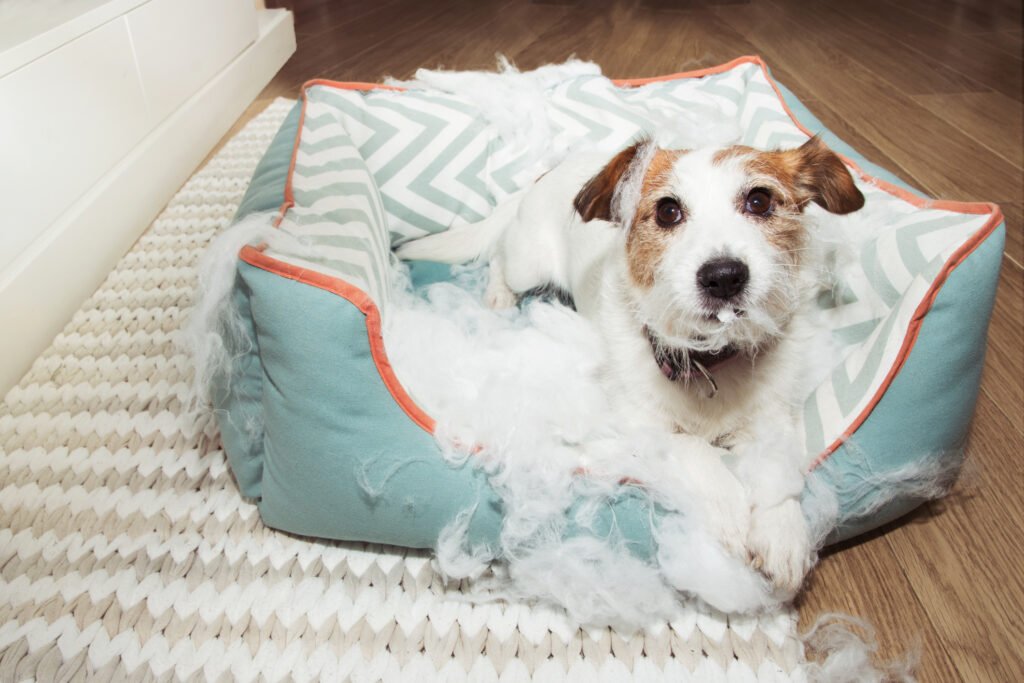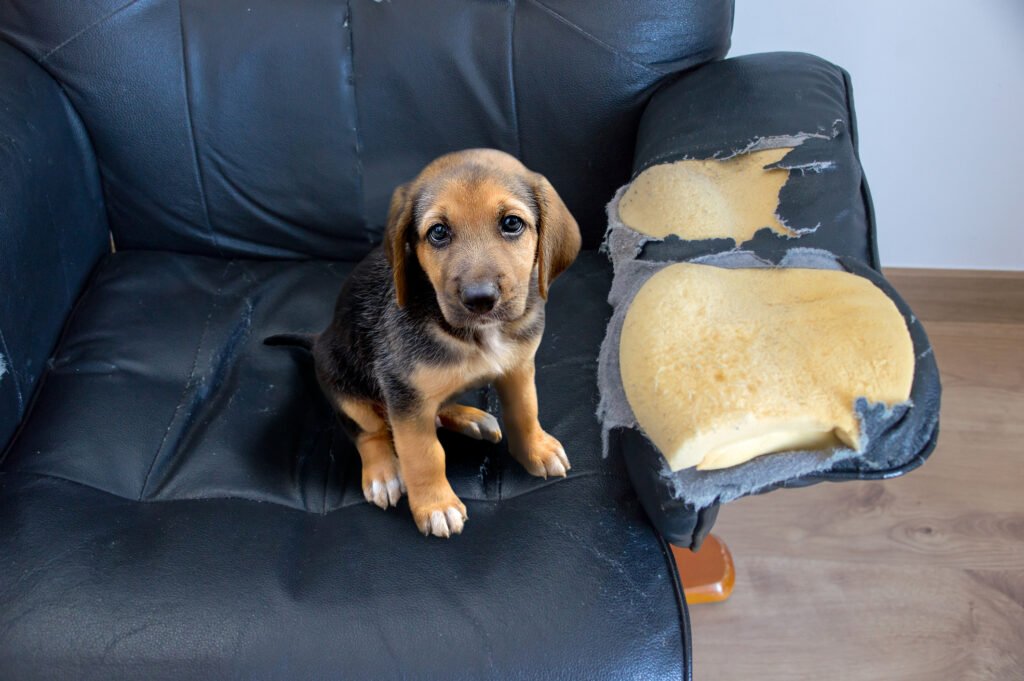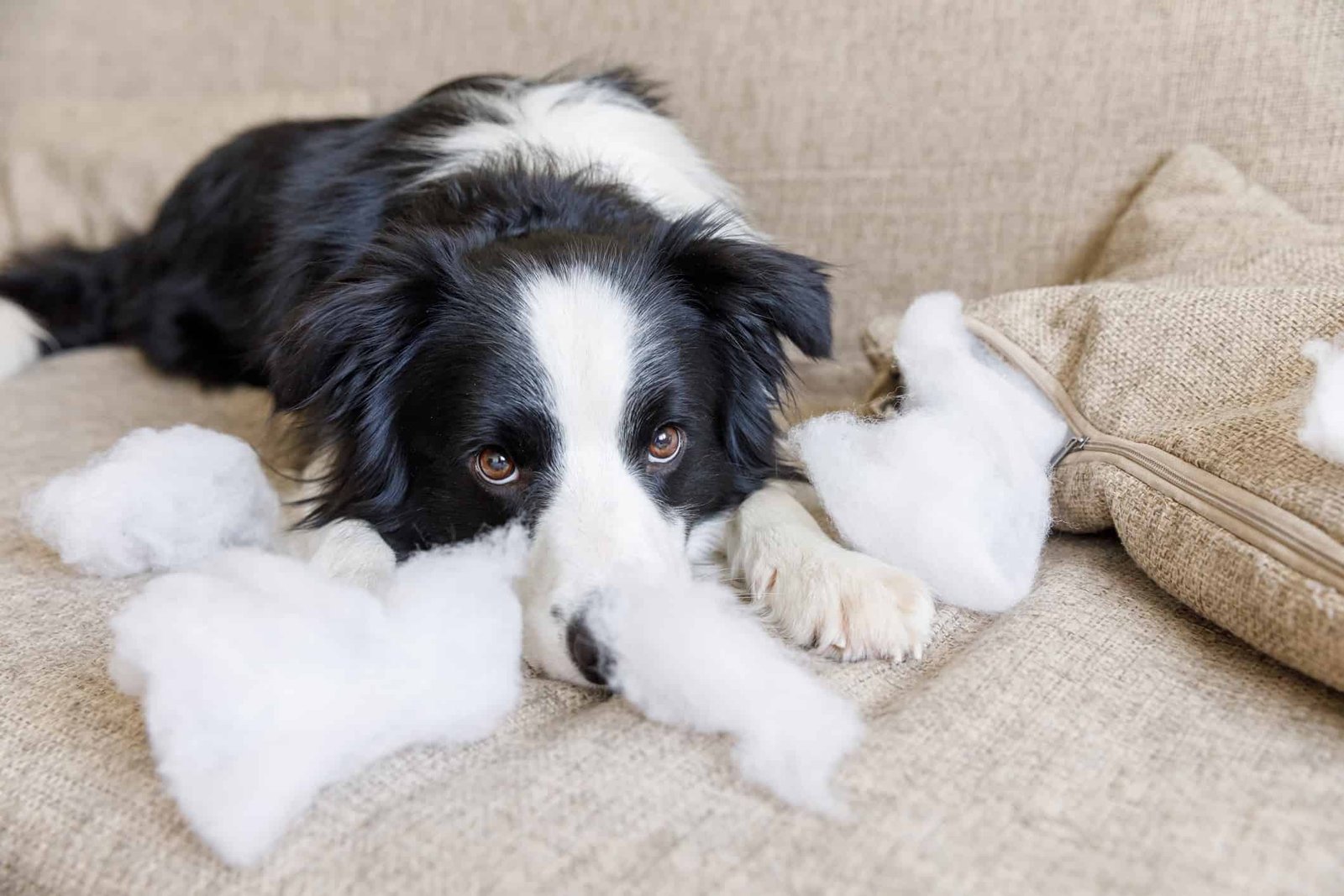Table of Contents
Are you tired of coming home to ripped up cushions, chewed up shoes, and torn apart household items? If so, then it’s time to tackle the issue of destructive dog behavior head-on. From chewing and digging to barking and jumping, these behaviors can not only cost you money but also take a toll on your patience. The good news is that there are practical tips and strategies to help prevent and stop destructive behavior before it becomes a habit. By understanding the underlying causes and taking proactive measures, you can create a safe and happy environment for your furry friend. From dog-proofing your home to providing mental stimulation, this article will guide you on the path to promoting a well-behaved and content pup.
Understanding Destructive Dog Behavior
Destructive dog behavior can be a frustrating and challenging issue to deal with as a pet owner. It can cause damage to household items and personal belongings, leaving you feeling overwhelmed and unsure of how to address the problem. By understanding the root causes of this behavior and taking appropriate action, you can prevent and manage destructive behavior in your furry friend.
Definition of destructive dog behavior
Destructive dog behavior refers to any behavior that results in damage to property, belongings, or surroundings. This may include chewing on furniture or shoes, digging holes in the yard, excessive barking, or jumping on people. It is important to note that dogs engage in destructive behavior for various reasons, and it is crucial to identify the underlying cause in order to address the issue effectively.
Common examples of destructive dog behavior
Some of the most common examples of destructive dog behavior include chewing, digging, barking, and jumping. Chewing is a natural behavior for dogs, especially puppies who are teething. However, if not properly redirected, it can result in damage to household items. Digging is another behavior that dogs may engage in out of boredom or instinct, leading to unsightly holes in your yard. Excessive barking can be a symptom of separation anxiety or attention-seeking behavior. Additionally, jumping on people can be seen as a form of greeting, but it can be disruptive and potentially harmful.
Reasons behind destructive behavior
The reasons behind destructive behavior in dogs can vary. Teething in puppies is a common cause of chewing, as their gums may be sore and chewing helps to alleviate discomfort. Medical problems, such as dental issues or allergies, can also lead to destructive behavior. Dogs may chew or scratch themselves excessively if they are experiencing discomfort. Separation anxiety is another common reason for destructive behavior, as dogs may engage in destructive activities when left alone. Attention-seeking, fear, and boredom can also contribute to destructive behavior in dogs.

Preventing Destructive Behavior
Preventing destructive behavior in dogs starts with recognizing the signs and identifying the cause.
Recognizing the signs of destructive behavior
It is important to be aware of the signs of destructive behavior in your dog. This may include finding chewed or damaged items, holes in the yard, excessive barking, or a tendency to jump on people. By paying attention to these signs, you can address the behavior before it becomes a habit.
Identifying the cause of destructive behavior
To effectively prevent destructive behavior, it is crucial to identify the underlying cause. This requires observation and understanding of your dog’s behavior. Is your dog displaying signs of teething? Are they exhibiting symptoms of separation anxiety? Are they bored or in need of more mental stimulation? By identifying the cause, you can take appropriate action to prevent the behavior from occurring.
Taking action before it becomes a habit
Once you have recognized the signs of destructive behavior and identified the cause, it is important to take action promptly. Addressing the behavior early on can prevent it from becoming a habit. This may involve redirecting your dog’s attention to appropriate toys or activities, providing additional exercise and mental stimulation, or seeking professional help if needed.

Practical Tips for Preventing Destructive Behavior
Preventing destructive behavior in dogs requires a combination of dog-proofing your home, supervising your dog, providing chew toys, ensuring adequate exercise and mental stimulation, and training your dog.
Dog-proofing your home
Dog-proofing your home is essential to prevent your dog from accessing items or areas that could be potentially damaging. This may involve keeping valuable items out of your dog’s reach, securing trash cans, and blocking off areas of the house that are off-limits to your dog.
Supervising your dog
Supervising your dog is crucial, especially during periods of potential destructive behavior. If you notice your dog beginning to engage in destructive activities, quickly redirect their focus to an appropriate toy or activity. This will help teach them what is acceptable to chew or play with.
Providing chew toys
Providing chew toys is an important aspect of preventing destructive behavior. Dogs have a natural instinct to chew, especially during teething or periods of boredom. By providing a variety of appropriate chew toys, you can redirect your dog’s chewing behavior to suitable items and reduce the likelihood of damage to your belongings.
Providing enough exercise and mental stimulation
Adequate exercise and mental stimulation are vital in preventing destructive behavior. Dogs need physical and mental stimulation to maintain a healthy and balanced lifestyle. Ensuring your dog receives regular walks, playtime, and interactive toys or puzzles will channel their energy in a positive way and prevent boredom-induced destructive behavior.
Training your dog
Training your dog is essential in preventing and managing destructive behavior. Basic obedience training, such as teaching your dog to sit, stay, and leave it, can help redirect their focus and encourage appropriate behavior. Positive reinforcement techniques, such as rewarding your dog for good behavior, will help reinforce their understanding of what is expected of them.

Seeking Professional Help
In some cases, seeking professional help may be necessary to address and manage destructive behavior in dogs.
When to seek professional help
If your dog’s destructive behavior persists despite your efforts to prevent and manage it, or if the behavior is severe or posing a risk to themselves or others, it may be necessary to seek professional help. A professional, such as a canine behaviorist or dog trainer, can provide expert guidance and develop a tailored plan to address the specific issues your dog is facing.
The role of a canine behaviorist
A canine behaviorist is a professional who specializes in the study of canine behavior and understands the root causes of destructive behavior. They can observe and assess your dog’s behavior, identify the underlying factors contributing to the behavior, and develop a comprehensive behavior modification plan. A behaviorist can also provide guidance on how to address any underlying anxiety or fear issues that may be driving the destructive behavior.
Choosing a dog trainer
When seeking professional help for destructive behavior, it is important to choose a dog trainer who uses positive reinforcement techniques and has experience in addressing this specific issue. Look for a trainer who has a solid understanding of canine behavior and who focuses on teaching both you and your dog how to communicate effectively. A good trainer will work with you to develop a training plan that suits your dog’s individual needs.

Understanding the Root Cause
Understanding the root cause of destructive behavior is crucial for effectively addressing and managing the issue.
Importance of understanding the root cause
Identifying and understanding the root cause of your dog’s destructive behavior is essential for developing an effective plan to address it. By addressing the underlying factors contributing to the behavior, you can implement targeted strategies and prevent the behavior from recurring in the future. Understanding the root cause also allows you to address any potential physical or emotional issues that may be impacting your dog’s behavior.
Ensuring a happy and healthy life for dogs
By addressing and managing destructive behavior, you are not only preventing damage to your belongings but also ensuring a happy and healthy life for your dog. Dogs thrive in environments where they feel secure, stimulated, and well-cared for. By providing appropriate physical and mental stimulation, training, and addressing any underlying issues, you can create a positive and enriching environment for your furry friend. Remember, dogs engage in destructive behavior for a reason, and it is our responsibility as pet owners to help them overcome these challenges and live their best lives.




